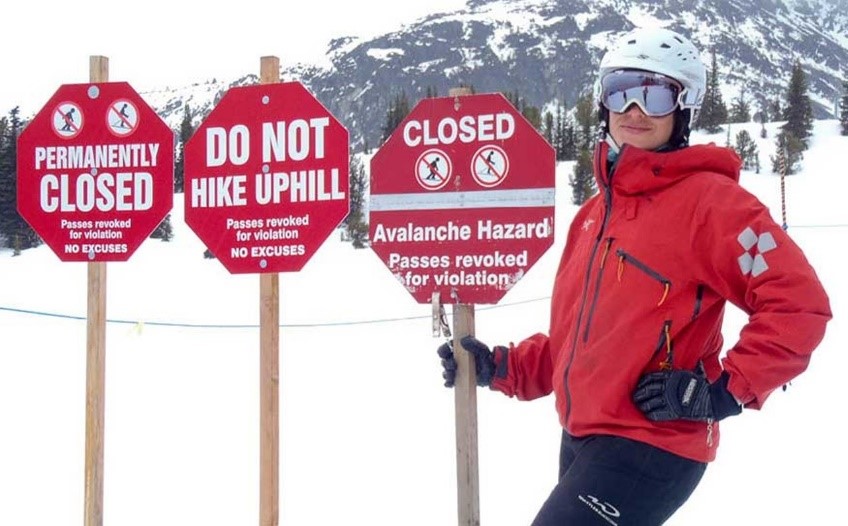Some of the best parts of a vacation are the memorable activities you choose to take part in. Lucky for you, TuGo’s Emergency Medical Insurance covers many activities such as skiing, parasailing, and even ziplining! But what if you’re looking for more of a daring adventure, like backcountry skiing, BASE jumping, or dirt biking? Good news: TuGo’s got the product for you!
Higher adrenaline? Higher risk! Protect Yourself with TuGo
TuGo’s optional Sports & Activities Coverage protects travellers who are ready to take their travels to new heights. Simply add this coverage to your Emergency Medical Insurance so you can be safely covered for a range of activities. Under our Sports & Activities Coverage, here’s a list of the sports & activities we cover:
Sport/Activity* Is it covered? Backcountry skiing/snowboarding ✅
Base Jumping ✅
Boxing ✅
Downhill freestyle skiing/Snowboarding in organized competitions ✅
Downhill mountain biking ✅
Hang gliding/paragliding ✅
High risk snowmobiling and motorized snow biking ✅
High risk motorized speed activities, including:
– Motorized racing competitions, endurance events or timed activities,
– Motocross, dirt biking, and motorcycling (unless vehicle is solely being used for transportation purposes) ✅
Ice climbing ✅
Mixed martial arts✅
Mountaineering – 2 options:
– Mountaineering up to 6,000 m elevation
– Mountaineering over 6,000 m elevation
– Includes ski mountaineering (skimo) and ice climbing if the activity is part of mountaineering ✅
Organized team sports including**:
– American and Canadian football
– Ice hockey
– Rugby ✅
Parachuting/skydiving/tandem skydiving ✅
Rock climbing (includes canyoneering, but doesn’t include indoor/outdoor artificial rock climbing) ✅
Scuba diving or free diving over 40 metres ✅
White water sports – Class VI ✅
Wingsuit flying ✅
*Coaches, referees, and sports officials do not need to purchase the optional Sports & Activities Coverage for these sports to be covered.
**Applicable to travellers 21 years and older (at the time of application).
Climbing above 6,000 m: TuGo’s Sports & Activities coverage saves climber $64,000
Ronald, a 44-year-old experienced climber, embarked on his final attempt to conquer his life-long dream of summiting Mount Everest. However, during his ascent, he slipped in the snow and twisted his knee. In extreme pain and unable to continue, Ronald made the difficult decision to end his summit pursuit and call for a helicopter rescue to take him to a hospital in Kathmandu. At the hospital, doctors diagnosed him with an ACL knee injury and recommended further treatment and surgery back home.
Fortunately, Ronald’s decision to add Sports and Activities Coverage for mountaineering over a 6,000-metre elevation and Trip Interruption Only Insurance to his Emergency Medical Insurance plan paid off. He was covered for the helicopter air ambulance rescue and his emergency medical evacuation from Kathmandu back to Canada for further treatment/surgery. Thanks to this coverage, Ronald received the necessary care, saving over $64,000 in medical and trip expenses.
Climbing up to 6,000 m: Climber avoids $24,000 out-of-pocket after a mountaineering accident
26-year-old Chris, a mountain climber, decided to go on a 3-day mountaineering expedition at Mount Baker in Washington, including limited ice climbing. Unfortunately, on the second day, while climbing, he encountered a significant fall, resulting in a head injury that led to a temporary loss of consciousness.
Due to the severity of his injuries, Chris had to be immediately airlifted to a hospital in Seattle. Despite sustaining a mild concussion and various abrasions, he was fortunate enough to be discharged on the same day. Nevertheless, his doctor strongly advised him to cancel any further climbing plans due to the risks associated with his concussion.
Thankfully, Chris made a habit of adding Sports & Activities Coverage for mountaineering up to a 6,000-metre elevation to his Emergency Medical Plan before his climbing trips. And, since mountaineering and ice climbing were a part of the same expedition, he only needed to add mountaineering when purchasing coverage.
Chris’s decision to purchase Sports & Activities coverage proved invaluable, shielding him from paying over $24,000 in medical expenses.
Are there sports & activities that aren’t covered?
Any sports & activities not listed above are covered under your TuGo Emergency Medical Plan, except for the following:
Sport/Activity Is it covered? Barrel racing ❌ Bronc riding ❌ Bull riding ❌ Chariot racing ❌ Chuck wagon racing ❌ Harness racing ❌ Rodeo bareback riding ❌ Rodeo clowning ❌ Rodeo team roping ❌ Steer wrestling/chute dogging ❌ Trick riding ❌
Don’t duck under ropes!
If you participate, train or practice in the following activities in any areas that have been closed off to public access and/or can typically only be accessed by crossing a fenced, gated or roped-off area that has been marked as off limits according to recommendations of safety authorities in the area, you won’t be covered:
Backcountry skiing/snowboarding
Downhill freestyle skiing/snowboarding in organized competitions
High risk snowmobiling and motorized snow biking
Ice climbing
Mountaineering over 6,000 m elevation
Mountaineering up to 6,000 m elevation
Rock climbing
As always, make sure you understand your travel insurance policy so you know what you’re covered for. Stay safe on your travels, and always remember to have fun, no matter where your adventures take you!
Happy adventuring,
Suki
By Suki Lam, TuGo Travel Insurance



